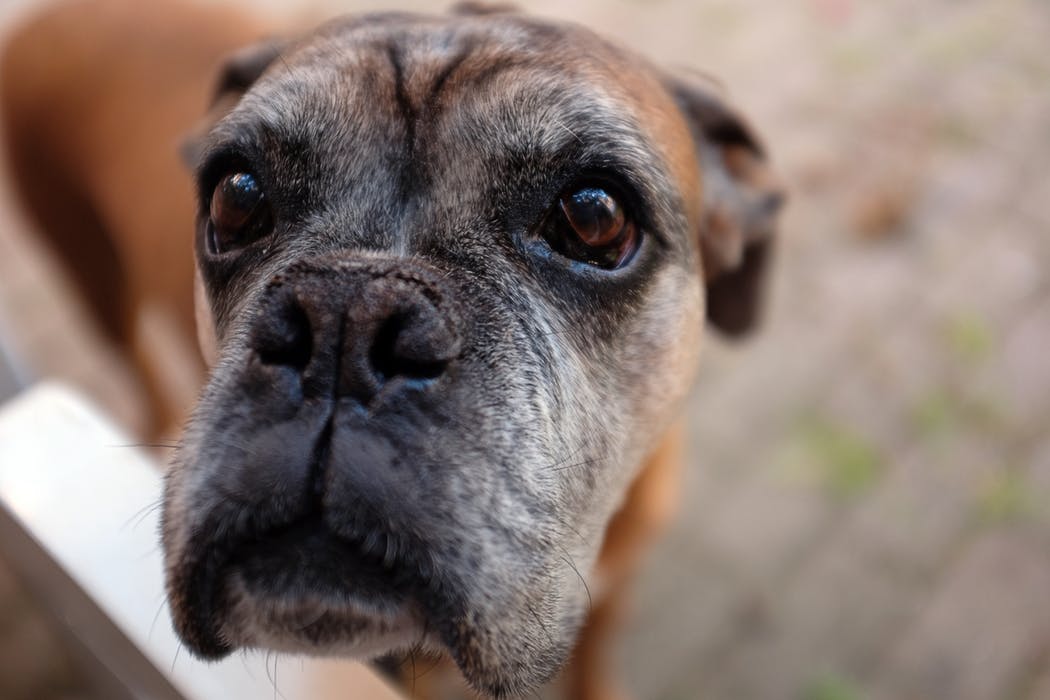I Think We Are Lucky We Can Choose to Euthanize Suffering Companions.
A Life Well Remembered
A woman wrote me a kind letter after I euthanized her really good dog, and she said “Thank you for your work to make Thor’s life so well remembered.”
And what that means is that his life was good. And at the end when quality of life declined and was finally irretrievable, she made the decision to let him go. An “obvious” decision without alternative in that case – but impossibly hard nonetheless. How can you “end” something you love with all your heart? Easily actually, from a certain perspective. My good customer lives with no regret, nor cruel memories, of her dog suffering. He had a life well remembered without a grueling, tormented ending.
Chapters of a Book
If your dog’s life was a book (and it is) how would it read? How will you remember it?
All books come to some ending. We may love a book and sigh as we close it, sorry to see it end. Dogs and cats may be the same sort of relationship in a way. Each chapter could be a year in the life. The chapters should read with dignity, a bright flame of fierce love of life and engagement in all the things a pet loves to do, the whole book through. In the last chapter, we should not read about degradation or suffering, long dark days and isolation. You write the last chapter. Chances are you will remember your good decision, or your bad decisions in the foreseeable future.
“Not going to get any better.”
Hopefully your vet, and your good judgment, will indicate an ‘unstoppable’ situation when it’s encountered. Your vet owes it to you to tell you when they’re at that terrible point where all they’re doing is putting their finger in the dyke, or trying to brake before the inevitable crash. And if, during this attempted deceleration you perceive that overall quality of life isn’t what you ‘want’ for your pet then why make the pet experience every grueling yard of the downward spiral? This by itself might not compel you, but taken in light of other points I want to make, it does factor in.
Who am I to decide?
You are the only one that can decide. God put a series of checks and balances in place to dispense the suffering or infirm souls of animals. In nature a dog or cat with depleted vision and agility would be consumed by the circle of life. Always, in nature the predator eventually becomes the prey. Compounding this are the earnest efforts by owners and veterinarians to keep pets as comfortable and stable as possible into later years. So pets can literally wear out, and remain in limbo; overdue for their natural release, in a broken body for quite some time. Only you can abbreviate the decline. How far into the decline you decide to take a pet is TOTALLY up to you. You are the one to decide.
How do you know it’s time?
Your pet will do any one or more of the following things, within the context of their prevailing condition, age or illness:
1. They stop eating
2. They often stop sleeping, and perhaps start pacing
3. They may lay down and not get up for any of the normal reasons
4. They can cry or whine
You know it’s time to let a dog or cat stop suffering when:
1. Your children and your neighbors encourage you to consider it. Denial can make their voices and comments seem so distant and small. Almost unheard. But when your dog is long-gone after a long, sad end, their words will thunder in your ears. You kept her on, way too long. They tried to tell you.
2. Your heart hurts when you look at your pet and you know it’s wrong to keep him keepin’ on.
3. When your dog or cat is “pitiful” in your eyes or the eyes of those you love and trust.
4. When you can’t even kid yourself that “He’s got his dignity; Oh yeah, THIS is a dignified existence. This is what I want for him.”
Your Sacrifice, Tribute, And Final Gift to Your Guardian:
Your dog served you all its life. Sure, you took care of her and gave her the essentials like food shelter and healthcare. But she was by your side any time you were available. She never let you come home from work or vacation without coming to see how you were. She would do anything for you. She would stay with you if you could not even afford to feed her anymore. She would die for you, or with you.
If you want to honor her, if you want to give her a sacrifice on par with the life she spent on you – let her have her dignity and a painless and unfrightening release. You can’t give your dog money or jewelry. They’re not motivated by much other than love, and tasty treats. When they’re hurting, and there’s no way to stop it, it’s over. And it’s time for you to stop being selfish and thinking about how YOU’RE gonna hurt when she’s gone. She’s hurting, and if you’re reading this; it means you’re still standing by focused on your own heartache. Do the honorable thing. Make a sacrifice even if it pains you, to stop hers.
Think Of Them, But Think LIKE Them:
What’s on the mind of any old dog or cat with severe infirmity or sensory deprivation?
A blind or sick animal has to assume that sooner than later, a predator will discover it, in its compromised condition and tear it to shreds. This is the way of things in nature, the circle of life. It’s gone on this way for millions of years before we came along. If you think an animal is coping with blindness, deafness and an inability to move around with the rationalizations that we can use, you would be wrong.
Your sick, blind, isolated dog or cat has a HIGH anxiety level, is fearful and as you may have seen in recent months, easily startled because at any moment, they believe a predator will erupt from the shrubs and consume them. Can you honestly say your elderly, weak, or end-stage dog or cat is easy-going and self-assured; the way it might have been as a younger pet with capable vision, hearing and agility? Old age is a stage of relative anxiety for infirm and very-elderly dogs and cats.
IS MY DOG SUFFERING?
What is suffering? Can you honestly look at the dog or cat, and think “He doesn’t feel that. He doesn’t know that a problem exists there. He feels fine. He is unaware of his illness or infirmity.” This is delusional. Perspective must be maintained, however; that we all have aches and pains. Most of us have a lump or two. Some of us even hurt from time to time and many of us have handicaps. It all comes to a head when we’re very very old as it does for dogs and cats.
But a dog cannot rationalize it’s gradual loss of ability and we don’t assist or reassure them the way we can encourage and empower our flagging relatives. They don’t speak a human language and if they’re very old they can neither see nor hear us try to reassure and assist them. Is suffering the experience of pain? Why do people always define it that way?
Is not “suffering” the experience of ANY helplessness, such as fear, pain, isolation, hopelessness or loss of control? Is there a way to make people understand that even without human words or understanding, these five conditions of helplessness are experienced as sharply by animals as they are by us???
Think of It Another Way:
If I could produce an ornate wand from my robes, and cast a spell on you, allowing you to BE your dog for a month; all your obligations would be handled, your life would not disintegrate in the meantime – Would you even be willing to *BE* your dog for a month? …What influences your belief that your dog should be that way for another month?
Dogs Don’t Smoke Pipes, Drink Wine and Read Good Books:
What’s important to a dog: Ability to move around, to be pain-free, to have dignity and smell pretty good, to enjoy communion with the pack (that’s you by the way), to be able to serve and protect. Where does your dog’s ‘day-to-day’ fall short?
Five Years Ago Did You Think Like This?
Do you ever wish you might just come down in the morning and discover that they passed peacefully in their sleep? What does that tell you about your true, unvarnished or even subconscious estimation of your pet’s condition? Do you feel that way about other engaged, comfortable pets?
The Daily Agony of Being “Too Old”:
- Are your dog’s eyes crusty, red and gooey?
- Is your dog’s mouth infected or rotting?
- Does your dog have open wounds which will not heal?
- Does your dog have red, gooey or swollen ear canals?
- Is there ANY chance that the conditions listed above don’t hurt, pretty badly?
If you saw a human child with rotting eyes, ears, or teeth, enormous skin lesions or untreated cancers, would you not turn your head, cry out loud for the poor child, and be sick with the sorrow? These are the kinds of things you see in documentaries on child-neglect among impoverished non-industrialized societies!!!! …oh, and commonly in the homes of people with very old and very sick pets.
So much suffering seems to be acceptable before the demise of our dogs and cats that would not be accepted for a dear, innocent child. Does a dog or cat understand very much more about its weakened, terminal condition than a small child?
I want to thank you, on behalf of a suffering pet who is unable to speak for itself; for your kind consideration of these points.
Dr. Erik Johnson
Post Script: This document represents twenty six years of one man’s thought on the subject of euthanasia. I began to work with animals at East Marietta Animal Clinic in 1981, as a nurse-of-sorts, at the age of sixteen. I’ve seen countless animals go down; some gracefully, some in utter agony. This has shaped my thought on this subject. SOME of the above will apply to you. Some will not.
Just so you know; I will never euthanize an animal that does not badly need it and I have declined a few. If I can find a home for an unwanted pet I will find it.
On the other hand; if an owner does not want to euthanize a suffering dog or cat I will try and get them to put their broken pet on something to make it easier for them to open their eyes to the fading, miserable world for another day.





